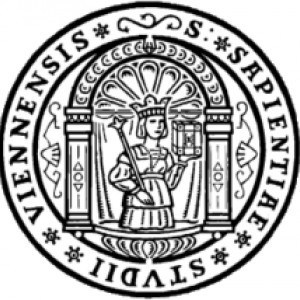Photos of university / #uniessex
The MSc in Human Rights at the University of Essex offers a comprehensive and interdisciplinary exploration of the fundamental principles, legal frameworks, and practical challenges associated with human rights issues worldwide. This programme is designed for students who are passionate about promoting social justice, understanding complex human rights violations, and contributing to positive change on both local and global levels. Throughout the course, students will engage with a diverse range of topics, including international human rights law, human rights advocacy, gender equality, migration, and the role of international organizations. Emphasizing critical thinking and analytical skills, the programme encourages students to examine human rights from multiple perspectives and develop innovative approaches to addressing contemporary human rights problems.
The programme provides a blend of theoretical understanding and practical skills, equipping students with the ability to analyze legal documents, conduct research, and formulate effective policy responses. Students will learn from leading academics and practitioners who are actively involved in human rights work, ensuring that the curriculum remains relevant and connected to current global issues. The course also offers opportunities for placements, internships, and collaborations with NGOs, international agencies, and governmental bodies, enabling students to gain valuable real-world experience.
Upon completion of the MSc in Human Rights, graduates will be well-prepared to pursue careers in human rights organizations, international law firms, government agencies, or further academic research. They will possess a solid understanding of the ethical, legal, and social dimensions of human rights and be equipped with the skills necessary to challenge injustices and advocate for vulnerable populations. The University of Essex’s commitment to social justice and global engagement makes it an ideal environment for students seeking to make a meaningful impact in the field of human rights.
Detailed Course Facts
Application deadline January 15 Tuition fee- GBP 9000 Year (EEA)
- GBP 11950 Year (Non-EEA)
- English
Course Content
Our courses are characterised by choice and flexibility. Studying at Essex is about discovering yourself, so your course combines compulsory ('core') and optional modules to ensure you gain key knowledge in the discipline while having as much freedom as possible to explore your own interests. Our modules change from year to year in response to new developments and innovation, but our module directory can show you which modules are available to our current students.
Example structure
Because of our interdisciplinary approach, many of our courses offer a wide selection of available modules, often including options from departments other than your own. Your course content will therefore depend on your own unique interests, but the structure below gives an example of whats available to you.
Year 1
- Foundations of Human Rights (core)
- Human Rights Institutions (core)
- The Enlightenment (core)
- Race, Class and Gender (optional)
- Philosophy and Religion (optional)
Year 2
- Issues and Methods in Human Rights (core)
- Ethics (core)
- Public International Law (core)
- International Relations (optional)
- Human Rights and Political Theory (optional)
Year 3
- Human Rights Colloquium (core)
- Rights Skills for Rights (core)
- Dissertation (core)
- Art, Politics and Human Rights (optional)
- Welfare, Human Rights and States Protection (optional)
English Language Requirements
IELTS band : 6
To study at this university, you have to speak English. We advice you to
take an IELTS test. More About IELTSRequirements
- A-levels: ABB-BBB
- GCSE English: C
- IB: 32-30 points (we consider IB certificates at the Higher Level on a case-by-case basis)
- Achievement of the Access to HE Diploma with a minimum of 6 level three credits at distinction and the remainder at merit (or above) or achievement of the Access to HE Diploma with a minimum of 45 level three credits at merit (or above).
English language requirements for applicants whose first language is not English: IELTS 6.0 overall with minimum 5.5 in each component (or equivalent). Different requirements apply for second year entry.
Work Experience
No work experience is required.
Related Scholarships*
- Academic Excellence Scholarship
"The Academic Excellence Scholarship can provide up to a 50 % reduction in tuition per semester. These scholarships will be renewed if the student maintains superior academic performance during each semester of their 3-year Bachelor programme. The scholarship will be directly applied to the student’s tuition fees."
- Access Bursary
Bursary for UK students all subjects where the variable tuition fee rate is payable.
- Alumni Bursary
Alumni Bursary for UK Undergraduate students
* The scholarships shown on this page are suggestions first and foremost. They could be offered by other organisations than University of Essex.
Funding
For up-to-date information on funding opportunities at Essex, please visit: www.essex.ac.uk/studentfinance.
The Human Rights programme at the University of Essex offers students a comprehensive understanding of the legal, philosophical, political, and social aspects of human rights issues. This course is designed to provide a critical analysis of the development, implementation, and enforcement of human rights laws and principles across different regions and contexts. Students will explore a wide range of topics including civil liberties, social justice, equality, freedom of speech, minority rights, and the roles of international institutions in protecting human rights. The curriculum combines theoretical frameworks with practical case studies, allowing students to develop analytical skills and a deep understanding of contemporary human rights challenges.
Throughout the programme, students engage with key concepts such as human dignity, justice, and the rule of law, while examining the historical evolution of human rights principles and their relevance in today's global society. The programme emphasizes interdisciplinary approaches, integrating perspectives from law, politics, sociology, and philosophy. Students will have the opportunity to participate in debates, research projects, and internships that enhance their practical understanding and prepare them for careers in human rights advocacy, law, policy analysis, or international organizations.
The degree may include modules on international human rights law, ethical considerations in human rights work, and the impact of global conflicts on human rights. Lecturers and tutors are experts in their fields, providing students with contemporary insights and fostering critical thinking. The University of Essex’s central location in a diverse and international city offers students a dynamic environment for study and engagement with global issues. Additionally, students can benefit from the university’s extensive network of partner organizations, NGOs, and governmental bodies, which may offer internship opportunities or practical experience relevant to human rights advocacy.
The programme culminates in a dissertation or research project, enabling students to investigate a specific human rights issue in depth. Graduates from this programme often pursue careers in legal practice, international organizations, human rights NGOs, government agencies, or further academic research. The University of Essex’s focus on social justice and human rights makes it an ideal place for students committed to making a positive impact through their professional and academic work. The programme fosters critical inquiry, ethical awareness, and practical skills, all essential for advancing human rights globally.






